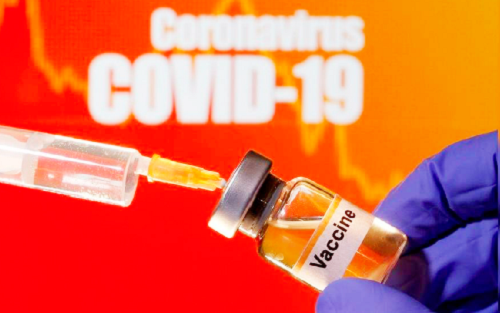
COVID-19 vaccine inequality - The poignant reality
The coronavirus disease took centre stage at the United Nations General Assembly in September, last year.
World leaders are anxious about the disease’s persistent global havoc.
Over 4.7 million people have succumbed to the pandemic.
Pharmaceutical companies have manufactured about six million doses of vaccine.
That only two per cent has reached Africa blights the achievement. South African President, Mr Matamela Cyril Ramaphosa, appealed to help rectify the inequality.
That was before Omicron’s arrival.
Nations are being condemned for hoarding vaccines, deepening the inequality.
Yet, the disparity underscores the fact that Africa tends to be part of global problems instead of contributing solutions.
A researcher stated on BBC News that to bridge the gap, Africa must increase its capacity in order to manufacture its own vaccine.
The World Health Organisation (WHO) repeatedly echoes that caution.
To wit, Africa must produce its own COVID-19 vaccine instead of relying on other continents for supply.
Indeed, no continent will place Africa’s interests ahead of its own, not in these constraining times.
The nations keeping their doses cannot be labelled selfish, because the disease keeps changing its colours to emerge a more fortified adversary, defying strenuous efforts of containment.
Vaccine production
Omicron is a stark reminder.
Therefore, nations are being humane in reserving vaccines for their population; in their shoes, Africa would do the same.
An urgent question emerges: Why is Africa not producing COVID-19 vaccine?
Though the entire continent cannot be lumped in the same needy circumstances, the answer to the question above borders on human capital development vis-à-vis quality education.
The speed with which research commenced in higher institutions across continents when COVID-19 reared its ugly head could only be applauded.
Intensive research has continuously yielded information, culminating in life-saving vaccines.
Initially, close observation helped to establish effective safety protocols.
The passion for solution demonstrated by global researchers in those terrifying times underscores quality technological education.
That most African research institutions do not fall within the ranks of achieving researchers for COVID-19 vaccine raises questions about its education.
In 2010, a World Bank report on funding tertiary education in Africa alerted, among other negative trends, that infrastructural development did not match quality in content.
Again, without lumping countries, acknowledging that many African countries are making strides in education, it cannot be denied that education in many African countries is not yielding human resources with the desired commitment and capacity for utilising knowledge to improve the quality of existence.
In many cases, education has become a gateway to self-aggrandisement.
Ghana is rapidly losing the human emphasis on education.
To an alarming extent, Ghanaian education has become a specious activity through which beneficiaries lunge at certification instead of knowledge.
Proponents, who forget that the target of education is humanity, pay lip service to the truism that education nurtures growing generations to take responsibility of self, community and the environment, which houses humanity.
Losing the human part of the equation implies that beneficiaries miss the sense of responsibility which motivates the educated to replicate human nurturing.
They miss the knowledge quest bonding the past and present to produce future human capital with capacity to improve upon established knowledge, thereby, reiterating the giving nature of education.
If research champions learning to improve human existence, the poor research culture of the country is the starkest indicator that Ghana is losing the human factor to superficial education.
Sue virus
The government deserves commendation for the handling of COVID-19 and efforts of containment, but the real feat was prioritising residents’ safety, delinquent attitudes notwithstanding.
Currently, progress made is being thwarted by the Omicron variant.
Research indicates that people who have received booster vaccine have 75 per cent protection only against the Omicron.
Prudently, nations are resorting to compulsory vaccination amid other containment measures to save lives.
Yet, four people are suing the Ghana Health Service (GHS) for embarking on compulsory vaccination.
They claim to be defending citizens’ rights.
Omicron may be less deadly, but it poses a high infection risk alongside other deadly variants.
Who defends the over four million fatalities, those in intensive care, the maimed survivors and the vaccinated who are continuously being endangered by the recalcitrant who defy the safety protocol?
At least, the GHS is attempting to save lives. Sue the virus, not GHS.
The Writer is a Lecturer, Language and Communication Skills at the Takoradi Technical University
